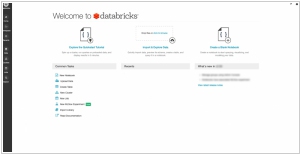Cloudera vs Databricks
May 26, 2023 | Author: Michael Stromann
12
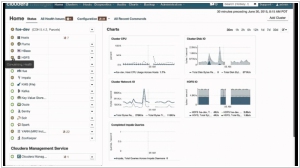
Cloudera helps you become information-driven by leveraging the best of the open source community with the enterprise capabilities you need to succeed with Apache Hadoop in your organization. Designed specifically for mission-critical environments, Cloudera Enterprise includes CDH, the world’s most popular open source Hadoop-based platform, as well as advanced system management and data management tools plus dedicated support and community advocacy from our world-class team of Hadoop developers and experts. Cloudera is your partner on the path to big data.
Cloudera and Databricks are both prominent players in the field of big data and analytics, but they differ in terms of their core offerings and approaches. Cloudera is primarily known for its enterprise data platform, providing a comprehensive suite of tools for data management, analytics, and machine learning. It offers a unified platform that combines Apache Hadoop, Spark, and other open-source technologies, enabling organizations to store, process, and analyze large volumes of data. Cloudera's platform is designed for on-premises, hybrid, and multi-cloud environments, providing flexibility and scalability.
On the other hand, Databricks specializes in cloud-based data engineering and analytics. It offers a unified analytics platform that is built on Apache Spark, providing a collaborative and scalable environment for data processing, machine learning, and AI workloads. Databricks leverages the power of Spark's distributed computing capabilities and provides additional features and optimizations to enhance productivity and performance. Its platform integrates with various data sources and tools, simplifying data pipelines and accelerating analytics workflows.
See also: Top 10 Big Data platforms
On the other hand, Databricks specializes in cloud-based data engineering and analytics. It offers a unified analytics platform that is built on Apache Spark, providing a collaborative and scalable environment for data processing, machine learning, and AI workloads. Databricks leverages the power of Spark's distributed computing capabilities and provides additional features and optimizations to enhance productivity and performance. Its platform integrates with various data sources and tools, simplifying data pipelines and accelerating analytics workflows.
See also: Top 10 Big Data platforms
Cloudera vs Databricks in our news:
2022. Cloudera launches its all-in-one SaaS data lakehouse
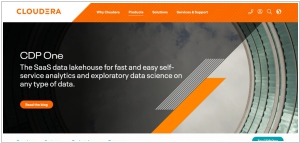
Cloudera, the company that specializes in big data with a focus on Hadoop, is now shifting its focus towards becoming the unified data fabric for hybrid data platforms. Taking a step further in this direction, the company recently launched its Cloudera Data Platform (CDP) One, a data lakehouse as a service (LaaS). This managed offering aims to provide enterprises with a platform that enables self-service analytics and data access for a broader range of employees. While Databricks, known for popularizing the lakehouse concept, also offers SaaS-based solutions, Cloudera positions its service as the "first all-in-one data lakehouse SaaS offering." Cloudera emphasizes that its service combines compute, storage, machine learning, streaming analytics, and enterprise security, making it a comprehensive solution for organizations.
2018. Big Data platforms Cloudera and Hortonworks merge
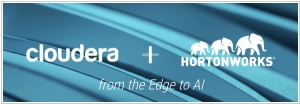
Over time, Hadoop, the once-prominent open-source platform, fostered the growth of numerous companies and an ecosystem of vendors. However, the complexity associated with Hadoop posed a significant challenge. This is where companies like Hortonworks and Cloudera stepped in, offering packaged solutions for IT departments seeking the advantages of a big data processing platform without the need to build Hadoop from scratch. These companies provided various approaches to tackle the complexity, but as cloud-based big data solutions gained prominence, the notion of implementing a Hadoop system from scratch became less compelling, even with the assistance of firms like Cloudera and Hortonworks. Today, both companies have announced their merger in a deal valued at $5.2 billion. The combined entity will serve a customer base of 2,500, generate $720 million in revenue, and possess $500 million in cash reserves, all while remaining debt-free.
2015. Hortonworks acquired dataflow solutions developer Onyara
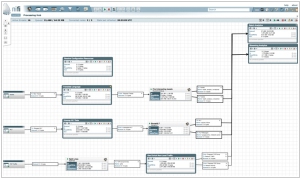
Hortonworks, a publicly traded company that offers a commercial distribution of the open-source big data software Hadoop, has announced its acquisition of Onyara, an early-stage startup known for the development of Apache NiFi. This open-source software originated within the National Security Agency (NSA) and enables efficient delivery of sensor data to appropriate systems while maintaining data tracking capabilities. In addition to previous acquisitions like XA Secure and SequenceIQ, Hortonworks has now expanded its portfolio with the intention of introducing a new subscription service based on Apache NiFi. This subscription will be marketed under the name Hortonworks DataFlow.
2015. Google partners with Cloudera to bring Cloud Dataflow to Apache Spark
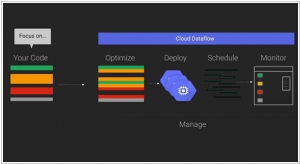
Google has announced a collaboration with Cloudera, the Hadoop specialists, to integrate its Cloud Dataflow programming model into Apache's Spark data processing engine. By bringing Cloud Dataflow to Spark, developers gain the ability to create and monitor data processing pipelines without the need to manage the underlying data processing cluster. This service originated from Google's internal tools for processing large datasets at a massive scale on the internet. However, not all data processing tasks are identical, and sometimes it becomes necessary to run tasks in different environments such as the cloud, on-premises, or on various processing engines. With Cloud Dataflow, data analysts can utilize the same system to create pipelines, regardless of the underlying architecture they choose to deploy them on.
2014. Enterprise Hadoop provider Hortonworks filed for an IPO

Hortonworks, the company developing commercial Hadoop technology, has submitted its initial public offering (IPO) filing. With over $33 million in revenue and an operating loss of nearly $88 million, the company has showcased its financial performance for the current year. Hortonworks emerged as a separate entity from Yahoo in 2011 and provides a comprehensive big data processing platform. This platform enables the processing of diverse data types, including SQL and NoSQL sources, and facilitates data search and visualization using various analytics tools. Hortonworks is renowned for its exclusive focus on Hadoop, offering a solution devoid of any proprietary extensions.
2014. Cloudera helps to manage Hadoop on Amazon cloud
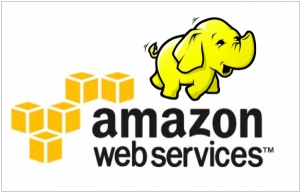
Hadoop vendor Cloudera has unveiled a new offering named Director, aimed at simplifying the management of Hadoop clusters on the Amazon Web Services (AWS) cloud. Clarke Patterson, Senior Director of Product Marketing, acknowledged the challenges faced by customers in managing Hadoop clusters while maintaining extensive capabilities. He emphasized that there is no difference between the cloud version and the on-premises version of the software. However, the Director interface has been specifically designed to be self-service, incorporating cloud-specific features like instance-tracking. This enables administrators to monitor the cost associated with each cloud instance, ensuring better cost management.
2014. Cloudera bought data-visualization startup DataPad
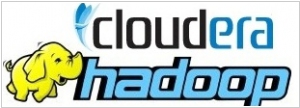
Cloudera, a cloud-based big data platform, has acquired DataPad, a data-visualization startup specializing in Python-based data analysis. This move by Cloudera is aimed at strengthening its Python tooling to attract more data scientists and developers, given the increasing competition in the Hadoop market. The co-founders of DataPad, who are well-known in the data science community for their development of the Python-based data analysis library Pandas, make this acquisition even more significant. In the commercial Hadoop market, where billions of dollars are at stake, companies like Cloudera, Hortonworks, MapR, and Pivotal are all vying to capture as many users as possible for their Hadoop distributions and big data infrastructure. Expanding the user base beyond IT staff and systems architects to include application developers and data analysts within the company is an effective strategy to ensure widespread adoption of their offerings.
2014. HP invests $50 million in Hortonworks
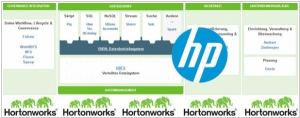
Cloud-based Big Data platforms Hortonworks and Cloudera are renowned for offering commercial versions and enhancements to Apache Hadoop. These two companies have been engaging in a battle of big-name tech investors in recent times. Cloudera has secured investments from notable entities such as Intel, Google Ventures, and In-Q-Tel. On the other hand, Hortonworks has garnered support from Yahoo and HP. The latest development occurred when HP invested $50 million in Hortonworks, and HP's CTO Martin Fink joined the Hortonworks board. This investment builds upon an existing agreement that allows HP to resell Hortonworks Data Platform to its customers. In a statement, Hortonworks CEO Rob Bearden emphasized that this collaboration will expedite the transition of our joint customers to a modern data architecture.

